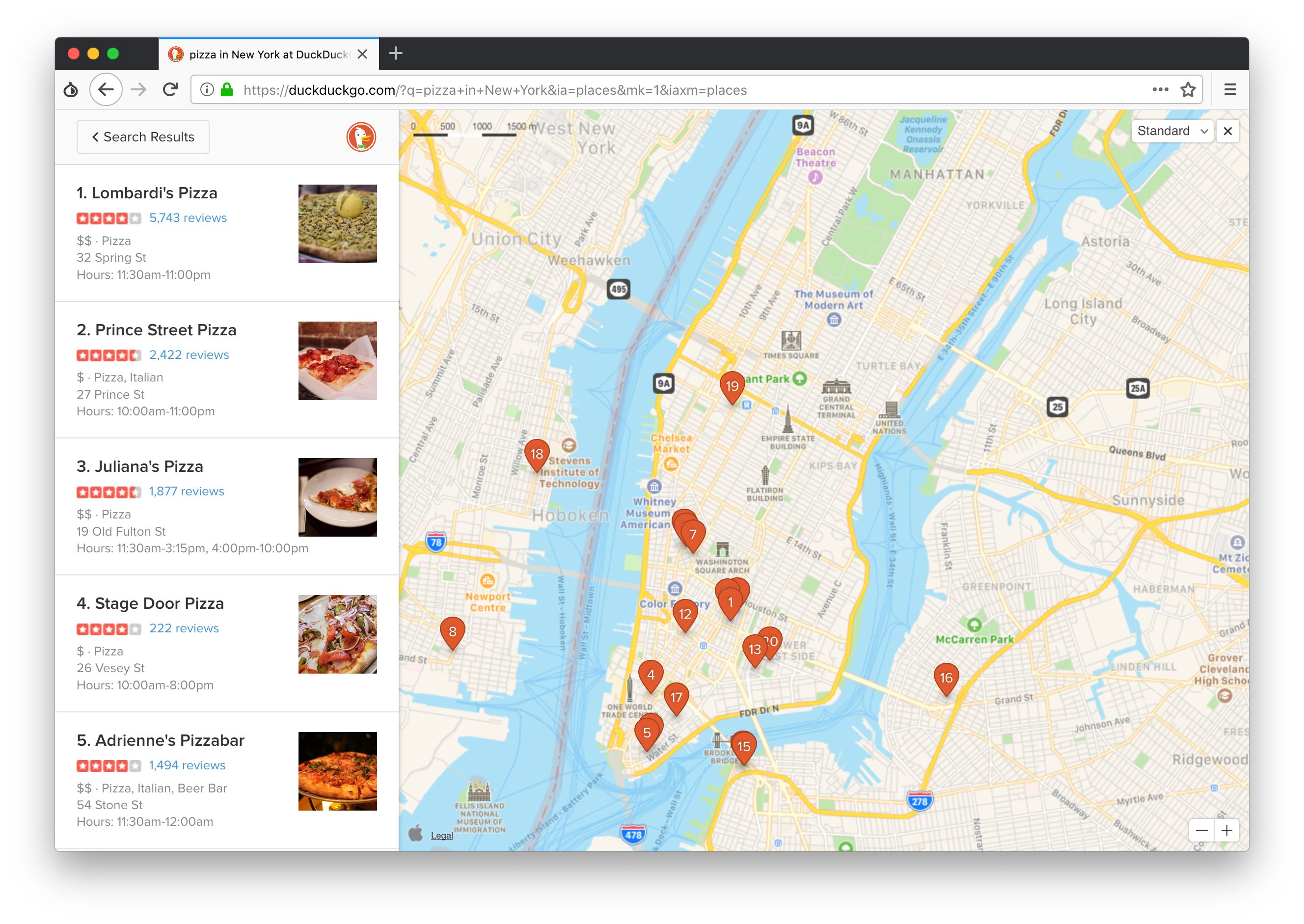DuckDuckGo has a new, unlikely partner in search: Apple.
The privacy-focused search engine that promises to never track its users said Tuesday it’s now using data provided by Apple Maps to power its map-based search results. Although DuckDuckGo had provided limited mapping results for a while using data from open-source service OpenStreetMap, it never scaled its features to those of its search engine rivals, notably Google and Bing.
Now, DuckDuckGo will return addresses, businesses, geographical locations, and nearby places using Apple Maps by default. (When we tested, directions and transit times open up in Apple Maps on your Mac, iPhone, or iPad — but on non-Apple devices, the directions defaults to and opens in Bing.)
In using Apple’s mapping data, DuckDuckGo will become one of the biggest users of Apple Maps to date, six months after Apple said it would open up Apple Maps, long only available on Macs, iPhones and iPads, to the web.
“We’re excited to work closely with Apple to set a new standard of trust online, and we hope you’ll enjoy this update,” said the search engine in a blog post.

DuckDuckGo in the Tor browser, using the new Apple Maps feature. (Screenshot: TechCrunch)
In reality, the partnership isn’t that unsurprising at all.
Apple faced flak for ditching Google Maps in iOS and rushing its overhauled Maps service out to the market, prompting a rare mea culpa from chief executive Tim Cook, apologizing for the disastrous rollout. At its most recent Worldwide Developers Conference in June, Apple promised a do-over, offering reliability and stability — but more importantly, privacy.
Where Google tracks everything you do, where you go and what you search for, Apple has long said it doesn’t want to know. Any data that Apple collects is anonymous, said Eddy Cue, Apple internet software and services chief, in an interview with TechCrunch last year. “We specifically don’t collect data, even from point A to point B,” said Cue. By anonymizing the data, Apple doesn’t know where you came from or where you went, or even who took the trip.
DuckDuckGo finally brings a much-needed feature to the search engine, while keeping true to its privacy-focused roots as a non-tracking search rival to Google.
“At DuckDuckGo, we believe getting the privacy you deserve online should be as simple as closing the blinds,” the company said. “Naturally, our strict privacy policy of not collecting or sharing any personal information extends to this integration.”
“You are still anonymous when you perform map and address-related searches on DuckDuckGo,” the search engine said.
In a separate note, DuckDuckGo said users can turn on their location for better “nearby” search results, but promises to not store the data or use it for any purposes. “Even if you opt-in to sharing a more accurate location, your searches will still be completely anonymous,” said DuckDuckGo.
“We do not send any personally identifiable information such as IP address to Apple or other third parties,” the company said.
DuckDuckGo processes 30 million daily searches, up by more than 50 percent year-over-year, the company said last year.

from Apple – TechCrunch https://tcrn.ch/2QQ9oVb
